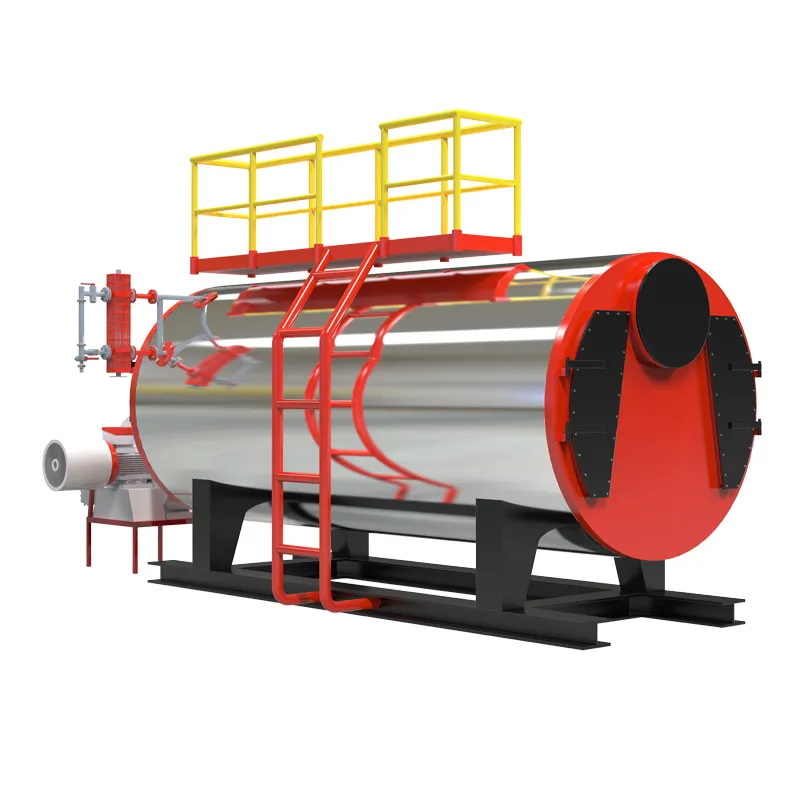
Nov . 24, 2024 23:38 Back to list
Understanding Pressure Levels in Hot Water Boilers for Optimal Performance
Understanding Hot Water Boiler Pressure A Comprehensive Guide
Hot water boilers are essential components of heating systems in residential and commercial buildings. They provide hot water for heating spaces, as well as for cooking and sanitation. One critical aspect of hot water boilers is their operating pressure, which plays a crucial role in ensuring efficiency, safety, and longevity of the system. In this article, we will explore the importance of hot water boiler pressure, factors influencing it, and tips for maintaining optimal pressure levels.
What Is Boiler Pressure?
Boiler pressure refers to the pressure of the water within a hot water boiler system. It is measured in pounds per square inch (psi). Maintaining the correct pressure is vital for the effective operation of the boiler. Typically, most hot water boilers operate efficiently between 12 to 30 psi. However, the exact pressure requirements can vary depending on the specific design and purpose of the boiler.
Why Is Boiler Pressure Important?
1. Efficiency Proper boiler pressure is crucial for the effective transfer of heat. If the pressure is too low, the boiler may not reach the required temperature to produce hot water efficiently. Conversely, excessively high pressure can lead to operational issues, including wasted energy and increased wear on boiler components.
2. Safety High-pressure levels can pose significant safety risks. If a boiler operates beyond its specified pressure limit, it can lead to catastrophic failures, including explosions. Safety valves are typically installed to release excess pressure; however, consistently high pressure can strain these safety mechanisms.
3. Longevity Maintaining optimal pressure helps ensure the longevity of a boiler. Consistently operating under the recommended pressure can lead to corrosion and degradation of components. High-pressure scenarios can accelerate wear and tear, leading to costly repairs or complete boiler replacements.
Factors Influencing Boiler Pressure
Several factors can influence the pressure in a hot water boiler system
hot water boiler pressure

1. Temperature As the temperature of the water increases, so does the pressure. It is crucial to monitor both temperature and pressure simultaneously to ensure they remain within safe operating limits.
2. Altitude The geographical location of a building can affect the boiler pressure. At higher altitudes, atmospheric pressure decreases, which can lead to variations in the performance of a boiler.
3. Water Supply and Quality The quality of the water being supplied to the boiler can also impact pressure levels. Hard water can lead to scaling and sediment buildup, affecting the efficiency and pressure stability of the boiler.
Tips for Maintaining Optimal Boiler Pressure
1. Regular Inspections Schedule regular maintenance and inspections of your hot water boiler. This can help identify and resolve pressure issues before they escalate into more severe problems.
2. Check Pressure Gauge Regularly monitor the pressure gauge attached to the boiler. If the pressure falls below or exceeds the recommended range, take corrective action immediately.
3. Bleed Radiators If the system includes radiators, bleeding them regularly can help prevent pressure build-up and maintain efficient operation. This process removes trapped air, allowing hot water to circulate properly.
4. Adjust the Pressure Relief Valve If the pressure consistently exceeds the desired level, it may be necessary to adjust or replace the pressure relief valve. Always consult a professional for this adjustment to ensure safety and compliance with local regulations.
5. Consult a Professional If you encounter persistent pressure issues, hiring a certified technician is advisable. They can diagnose the root cause of the problem and recommend appropriate solutions.
In conclusion, understanding and maintaining the correct pressure in a hot water boiler is vital for efficiency, safety, and durability. By keeping an eye on pressure levels and adhering to recommended practices, homeowners and facility managers can ensure their heating systems operate optimally and provide reliable hot water as needed.
-
High-Efficiency Commercial Oil Fired Steam Boiler for Industry
NewsJul.30,2025
-
High-Efficiency Biomass Fired Thermal Oil Boiler Solutions
NewsJul.30,2025
-
High Efficiency Gas Fired Thermal Oil Boiler for Industrial Heating
NewsJul.29,2025
-
High-Efficiency Gas Fired Hot Water Boiler for Sale – Reliable & Affordable
NewsJul.29,2025
-
High Efficiency Biomass Fired Hot Water Boiler for Industrial and Commercial Use
NewsJul.29,2025
-
High-Efficiency Biomass Fired Hot Water Boiler for Industrial Use
NewsJul.28,2025
Related PRODUCTS






















